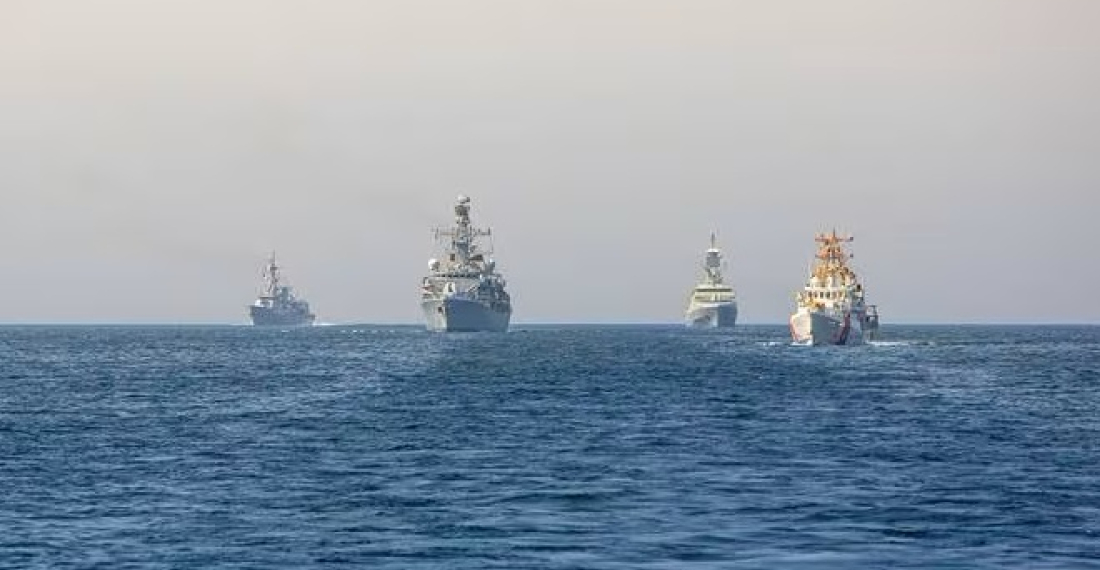The conflict between Israel and the Palestinians in Gaza has spilled over into the Red Sea as Houthi rebels in Yemen, who control parts of the country including its capital and some of its Red Sea coastline, intensify their attacks on shipping passing through the Red Sea.
BP on Monday, became the latest of a number of global companies that announced the suspension of use of the Red Sea route which connects the Gulf region and the Indian Ocean to Europe through the Suez Canal.
New international task force to address threat
In the meantime the United States has condemned the attacks and promised decisive action to deal with them. The Pentagon announced on Monday the formation of a new international mission focused on countering attacks on commercial vessels in the Red Sea.
A statement by US Defence Secretary Lloyd Austin said: “The recent escalation in reckless Houthi attacks originating from Yemen threatens the free flow of commerce, endangers innocent mariners, and violates international law. The Red Sea is a critical waterway that has been essential to freedom of navigation and a major commercial corridor that facilitates international trade. Countries that seek to uphold the foundational principle of freedom of navigation must come together to tackle the challenge posed by this non-state actor launching ballistic missiles and uncrewed aerial vehicles (UAVs) at merchant vessels from many nations lawfully transiting international waters.
This is an international challenge that demands collective action. Therefore, today I am announcing the establishment of Operation Prosperity Guardian, an important new multinational security initiative under the umbrella of the Combined Maritime Forces and the leadership of its Task Force 153, which focuses on security in the Red Sea.
Operation Prosperity Guardian is bringing together multiple countries to include the United Kingdom, Bahrain, Canada, France, Italy, Netherlands, Norway, Seychelles and Spain, to jointly address security challenges in the southern Red Sea and the Gulf of Aden, with the goal of ensuring freedom of navigation for all countries and bolstering regional security and prosperity.”
The not so hidden hand of Iran
The Houthis are considered part of Iran’s mosaic of power in the Middle East, and it is unlikely they would revert to such brazen behaviour without Iranian acquiescence. The attacks therefore once more highlight Iran’s role in the region.
The UK’s parliament’s Foreign Affairs Select Committee this week heard that Iran is making the greater geopolitical gains in the Israel-Gaza war but would significantly lose influence if the Middle East conflict were to be resolved. This opinion was contained in submissions to the Committee by experts and academics as part of hearings on on-going Iranian activity. If left unchecked, Tehran's nuclear programme could also lead to major proliferation across the region with others looking to deter any attack by building their own weapons, the statements to the Foreign Affairs Select Committee showed. But Iran’s power base could be substantially undermined if an enduring solution were to be found for the region’s Palestinian population.
Leading academics and groups who submitted written evidence to the committee also stated that the Gulf region had learnt to become less dependent on the West and was instead creating a “new multipolar world order” with the help of other powers.







